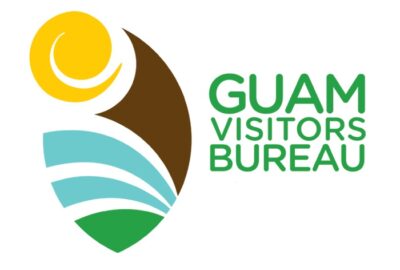New research shows tourism recovery threatened. Initiative announced to address the workforce deficit in the travel and tourism industry.
A newly formed Tourism Employment Expansion Mandate (TEEM) project, which is a cross sector collaborative effort to understand the workforce deficit in the travel industry, has released new global research that indicates the situation is more critical than ever.
The project put in place by the Global Travel and Tourism Resilience Council (RC) under the leadership of Hon. Minister Edmund Bartlett of the Jamaica Tourism Ministry to monitor emerging trends and promote resilience, has shared their preliminary research with some alarming findings. While the tourism sector has fueled the global economy of up to 10.6%, it is a vulnerable sector that has felt the impact of the global pandemic with a loss of more than 62 million workers according to the World Economic Forum.
Working on behalf of TEEM to ensure a broad cross section are organizations such as EEA, GTTP, Sustainable Hospitality Alliance, A World for Travel, Medov Logistics, JMG, EMG, FINN Partners, LATA, USAID Developing Sustainable Tourism in Bosnia Herzegovina and others. The research was conducted globally across travel and tourism industry. The key findings include:
Alarming deficit figures – 68 percent of respondents said they are currently understaffed. Whilst the deficit of the workforce has been widely discussed – there’s been no data to understand how widely the issue is being felt across the industry. The resource shortage remains critical in food preparation, technology, AI, sales and reservations.
Deficit due to the industry’s image – 88 percent of the global travel and tourism industry recognize the deficit in the workforce and attribute that to a reputational challenge, leading to a lack of talent in the industry. The same amount would welcome and support an initiative to understand talent sentiment.
Younger demographic harder to attract – 62 percent said the 25–45-year-olds are the most difficult talent to attract to travel and tourism. Talent is choosing to pursue jobs in technology and pharmaceuticals rather than the travel industry.
No action to address the issue – 80 percent of respondents said they leave jobs open longer than in previous years and 82 percent leave jobs open rather than pushing through other means. This indicates that the travel and tourism industry is taking a wait and see approach rather than taking action to address the issue.
GOT NEWS? click here
Google News, Bing News, Yahoo News, 200+ publications
The research was initially presented at the Global Tourism Resilience Conference in Kingston, Jamaica in celebration of February 17 being declared Global Tourism Resilience Day by the United Nations – a day which is focused on driving global resilience within the travel industry.
This is the first phase of the planned research being driven by Arvensis Search for TEEM. The next step will look at understanding the talent sentiment and identifying reasons for attrition and migration to other industries.
TEEM was represented on two panels to discuss the human capital crisis identified by the research, and steps that can be taken to address it. Both Anne Lotter, Executive Director of GTTP and Christian Delom, Secretary General of the A World for Travel stressed that engaging the future talent pipeline with an interactive and exciting curricula and retaining staff by adapting the business model to align with students’ expectations were some of the suggestions made by the panel. The panel, agreed that education is key, offering a professional training program which balances skills and training to ensure future employees do not transfer out of the sector. Ibrahim Osta, USAID Developing Sustainable Tourism in Bosnia and Herzegovina, Chief of Party also presented models of best practice in human capital development for the tourism sector from various countries including Jordan, Bosnia and Herzegovina. He presented a four-pronged approach for the Industry that includes expanding the demand for tourism jobs through employer brand awareness campaigns, upgrading vocational training for youth, improving higher education institutions’ curricula and implementing industry-based training to upskill existing workers, all elements of the TEEM plans going forward.
Minister Bartlett, the Resilience Council’s Co-Chair said: “Resilience is not a destination… it’s a journey. We all must be on this journey together in collaboration with each other to ensure that economic parameters and the social conditions are improved, while climate and the environment are addressed. Resilience means we prepare for crises rather than react to them. Let us not have gone through this pandemic without having learned the lessons. Across the world there are examples that we can replicate while we improve our own responses, we lift those who have not the capacity. We build capacity and we share best practices, new technologies and social philosophies that ensure local supply chains are maximized as workers are embraced and thrive within the sector.”
The Minister will further discuss the work of Project TEEM and resilience of the industry on 8 March 2023 at ITB, Berlin. Minister Bartlett will be joining the ‘New Narratives for Work’ panel session moderated by established tourism author Harald Pechlaner for Destination Resilience, Routeledge, 2018. The Future Work Track session will be on the Blue Stage, Hall 7-1b from 10:30-12:00. For more information on Project TEEM or to be involved, write to TEEM@resiliencecouncil.com
MEDIA CONTACT: Corporate Communications Division, Ministry of Tourism, 64 Knutsford Boulevard, Kingston 5, Telephone: 920-4924, Fax: 920-4944 – OR – Kingsley Roberts, Senior Director, Corporate Communications, Ministry of Tourism, 64 Knutsford Boulevard, Kingston 5, Tel: 920-4926-30, ext.: 5990, Cell: (876) 505-6118, Fax: 920-4944







